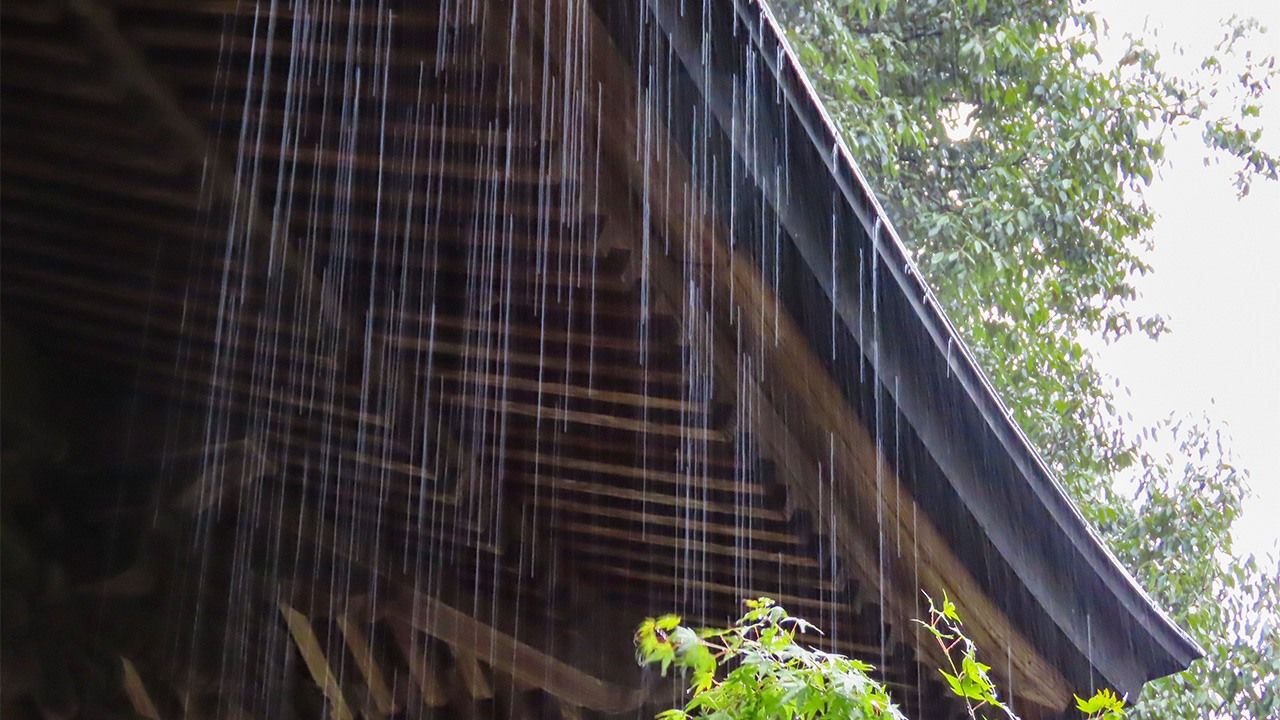
A Journey Through Japanese Haiku
Shelter from the Rain
Culture Environment Lifestyle- English
- 日本語
- 简体字
- 繁體字
- Français
- Español
- العربية
- Русский
世にふるもさらにしぐれのやどり哉 宗祇
Yo ni furu mo / sara ni shigure no / yadori kana
Passing through the world,
like sheltering from
a winter shower(Poem by Sōgi, included in a 1495 collection)
Sōgi (1421–1502) was a poet of renga linked verse, from which haiku later developed. He lived in an age of war and traveled out from Kyoto to samurai leaders for whom he wrote renga. He is thought to have composed this hokku (the first poem in a renga sequence) in his late forties in what is now Nagano Prefecture, where he was taking refuge from the Ōnin War that broke out in the winter of 1467.
The word furu has a double meaning of years “passing” in Sōgi’s life and the rain “falling.” On the surface, the poem can be read as saying, “I have grown old, but I still travel through cold showers of rain, lodging here and there.” But take the sara ni as expressing emphasis, and another interpretation takes shape. As showers stop as quickly as they start, one can read the meaning as, “I have passed many years in the world, but it was like I was taking brief shelter from the rain.” In other words, the poem represents the brevity of life.
The comparison between life and a winter shower comes originally from a waka written by Nijōin no Sanuki, who was active in the twelfth and thirteenth centuries: Yo ni furu wa / kurushiki mono o / maki no ya ni / yasuku mo suguru / hatsushigure kana (Living in the / world is painful but / the first winter shower / passes so easily / over my pinewood house). Sōgi alludes to this poem, taking the winter shower as a metaphor for the fleeting nature of life, and with the word yadori (sheltering), adds the image of life as a short journey.
(Originally published in Japanese. Banner photo © Pixta.)